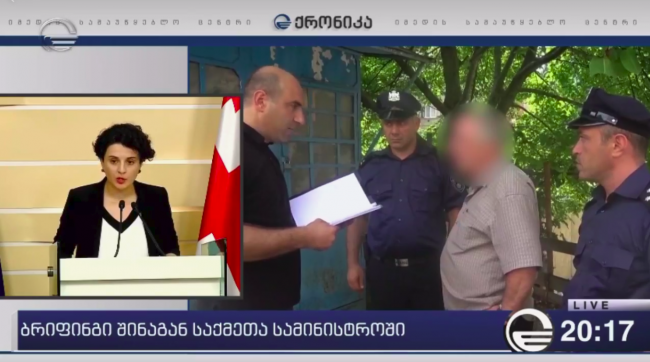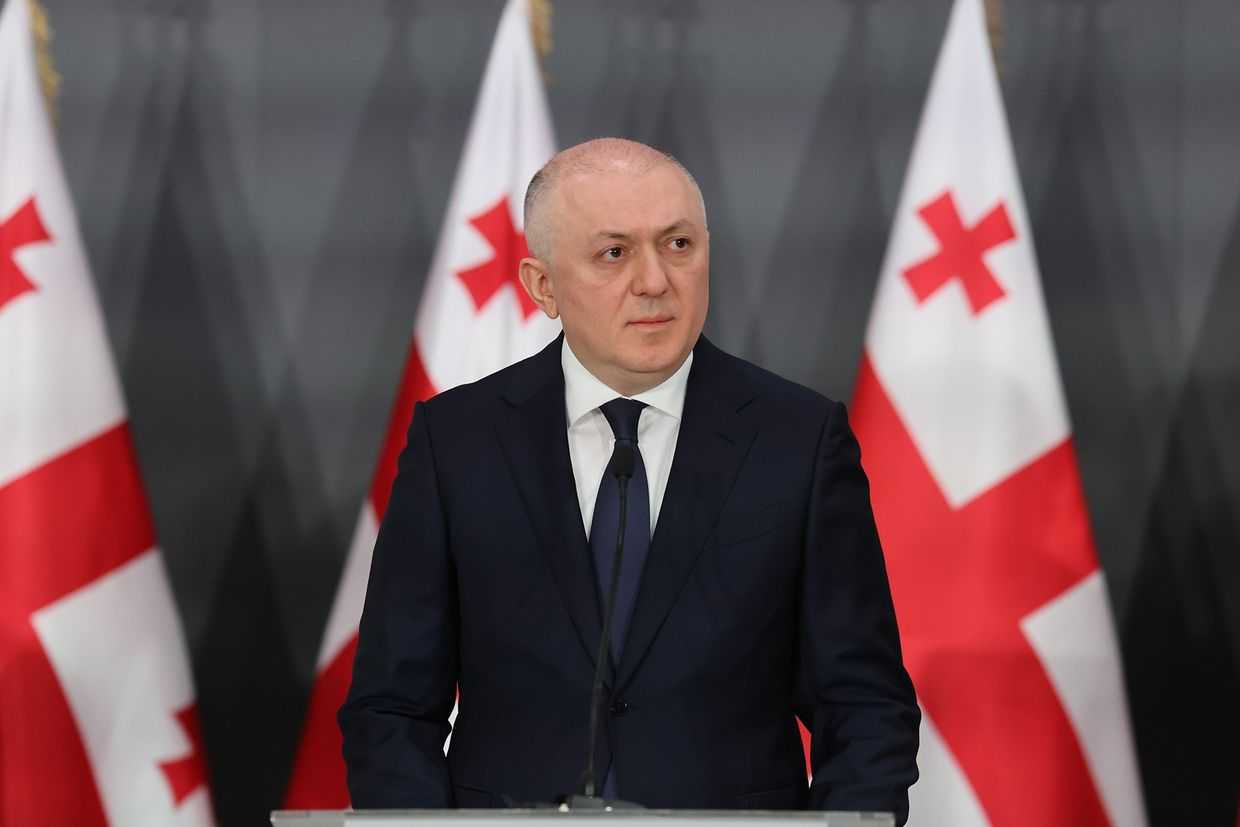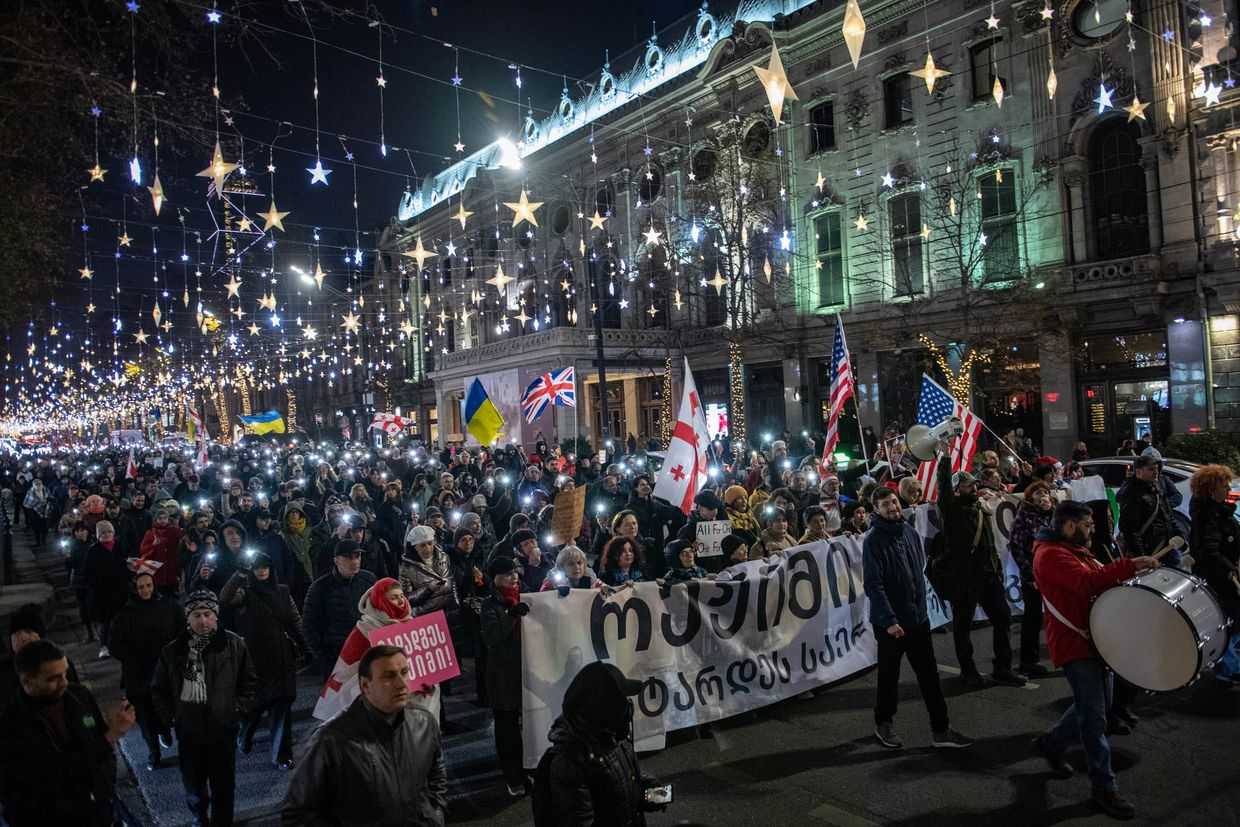

 On Monday, the Georgian Interior Ministry said it arrested seven individuals for breaking safety protocols during mining operations. Six of the charges were filed within the investigation into the 5 April coal shaft collapse in Tkibuli, in central Georgia, that killed six miners and injured three.
On Monday, the Georgian Interior Ministry said it arrested seven individuals for breaking safety protocols during mining operations. Six of the charges were filed within the investigation into the 5 April coal shaft collapse in Tkibuli, in central Georgia, that killed six miners and injured three.
Those arrested include recently-fired director Akaki Akhvlediani, the mine’s chief engineer, a manager, and two supervisors.
Authorities claim that when mining commenced in Tkibuli in February, it was in violation of a regulation that prohibits operations until all safety standards are met. The violations eventually led to the collapse of the tunnel roof, killing six.
Police also arrested the owner of another mine, which collapsed and killed two workers on 2 June, on similar charges.
According to paragraph 2 of article 240 of the Georgian Criminal Code, the breach of safety regulations — during mining, construction, or other work that could result in death or serious injury — carries a sentence of two to five years in prison.
The Interior Ministry said it’s also ‘actively investigating’ another incident, the 16 July methane gas explosion in the Mindeli mine that collapsed a tunnel roof, that left four workers dead and four with critical burns.
Tamaz Dolaberidze, Deputy Head of the Georgian Trade Unions Confederation (GTUC), told OC Media that yesterday’s arrests were the first of their kind, seeing as these tragedies have previously gone without any legal consequences. ‘Taken in isolation, [the progress] is worth welcoming, but we should also question whether prosecuting mid-level management would prevent future incidents’, said Dolaberidze, stressing that legal actions should be supplemented with wider political solutions.
Dolaberidze criticised the current mining business model, which ties workers’ salaries to their speed and production output. ‘With workers’ salaries dependant on output, [they] are prone to take greater risks, including their present demands to restart operations. Time is important for them, and it may drive them to pay less attention to labour safety’.
‘Rumours and confusion are pervasive among the locals in Tkibuli. The government should reiterate its guarantee of compensation while the shafts are closed, so that miners can take some time off, knowing they won’t be left without income. The government should clearly state its plans for Tkibuli, then follow them up with specific agreements’, said Dolaberidze.
A rare indictments followed, economic plans still unclear
The recent arrests came after several leading Georgian rights groups — including EMC, the Georgian Young Lawyers’ Association, and the Open Society Georgia Foundation — criticised the Interior Ministry for its ‘ineffective investigations’ into workplace deaths and urged the government to establish a special investigative committee that would examine and evaluate the Ministry’s work.
According to the Public Defender’s report, of the 128 workplace incidents in 2017 that resulted in injury or death, 81 remain unresolved and only 11 have proceeded to court. Data obtained from Georgia’s Interior Ministry shows that over eight years, from 2010–2017, 359 people were killed and 984 injured in occupational accidents.
The rights organisations have also given the authorities one month to ‘outline a plan of alternative economic development for Tkibuli’. Mine operations were halted by Prime Minister Mamuka Bakhtadze after the July tragedy, pending the results of a formal investigation.
On the day of the arrests, Tkibuli miners gathered in front of the mine’s administration office to demand a clear answer from the Prime Minister on when they can resume their work. They threatened to organise protests in Tkibuli, starting Thursday, until the government answers.
Concerns over work in Tkibuli have grown since July, with the mining company and the government sending mixed messages about whether workers’ salaries would be compensated beyond the month that was promised. Furthermore, the owner of Saknakhshiri, the Georgian Industrial Group, declared that it could not make the Tkibuli mines ‘entirely safe’. It offered to hand the company over to the Georgian government, but the government has yet to release an official position on the issue. In early August, Liberali reported that the government had transferred ₾1,800,000 (about $735,000) from its reserve fund to a local municipality, to cover Saknakhshiri’s taxes.
[Read also OC Media’s editorial: Georgia’s government needs to act to protect workers]









